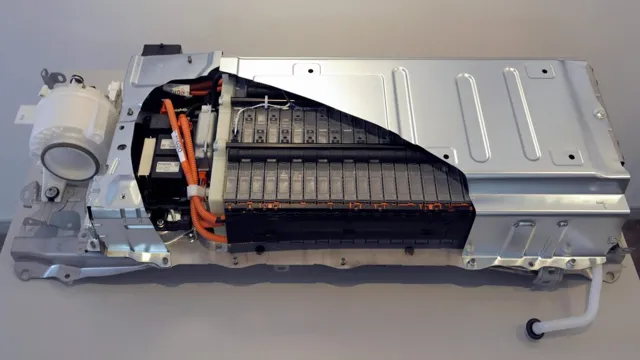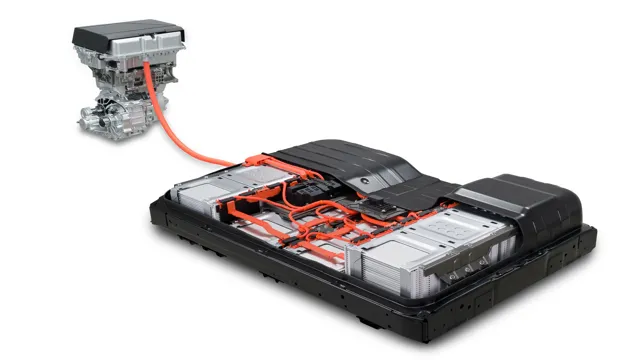Shockingly Affordable: Unveiling the True Battery Electric Car Prices
Have you been considering purchasing an electric car but wondering about the battery electric car price? You’re not alone. With the rise in popularity of electric vehicles, many car buyers are curious about the costs associated with switching to a more sustainable option. In this blog, we’ll break down what you need to know about the prices of battery electric cars and how they compare to traditional gasoline-powered vehicles.
By the end of this article, you’ll have a better understanding of the costs involved with purchasing an electric car and why it may be a wise investment in the long run. So, fasten your seatbelt and let’s explore the world of electric car prices!
Average Cost
When it comes to the price of battery electric cars, there are a variety of factors to consider. Generally speaking, the cost of an electric vehicle can be higher than that of a comparable gasoline-powered car. However, this initial investment can often be offset over time by lower fuel and maintenance costs, as well as potential tax incentives.
The average cost of a battery electric car varies widely depending on factors such as make and model, range, and available features. Some popular electric cars, such as the Nissan Leaf and Chevrolet Bolt, have starting prices in the mid-$30,000 range, while luxury options like the Tesla Model S can cost well over $100,000. Overall, the battery electric car price is becoming increasingly competitive as technology advances and more manufacturers enter the market.
Comparing BEVs to Gasoline Cars
When it comes to average cost, there is a clear winner between battery electric vehicles (BEVs) and gasoline cars. While BEVs may have a higher upfront cost, they prove to be more cost-effective in the long run. The maintenance and operation costs of gasoline cars are much higher than for BEVs, due to the complexity of their engines and the need for regular oil changes.
Additionally, the cost of gasoline fluctuates constantly, whereas electricity costs are usually more stable and predictable. BEV owners also benefit from government incentives and tax breaks, further reducing the cost of ownership. Overall, while the initial investment in a BEV may be greater, the savings in maintenance and operation costs make it a more cost-effective choice in the long term.
So, if you’re looking to save money and reduce your carbon footprint, a BEV is definitely worth considering.

Factors That Affect BEV Prices
When it comes to the factors that affect the prices of Battery Electric Vehicles (BEVs), one of the most important ones is their average cost. The cost of manufacturing BEVs is still higher than that for conventional cars due to the complex technology involved, and this reflects in their purchase price. There are also additional costs related to the production and disposal of batteries, which can increase the overall price.
However, many governments offer incentives to individuals who buy BEVs, such as tax credits and rebates, which can help reduce the cost. In addition, as more manufacturers produce BEVs and the technology continues to improve, the average cost is expected to decrease. As a result, BEVs are becoming more affordable for consumers, making them an attractive option for those looking to lower their carbon footprint without compromising on performance.
Cost of Ownership
When it comes to purchasing a battery electric car, many people are concerned about the battery electric car price. While the upfront cost may be higher than purchasing a traditional gas-powered car, it’s important to consider the total cost of ownership. Battery electric cars have lower maintenance costs and fueling costs than traditional cars, which can ultimately save you money in the long run.
In addition, many electric car manufacturers offer incentives and tax credits that can bring down the cost of purchasing an electric car. Plus, with advancements in technology and growing demand for electric cars, battery electric car prices are expected to continue to decrease over time. So, while the initial cost may seem daunting, it’s important to consider the larger picture and the potential cost savings over the life of the vehicle.
Saving Money with a BEV
When it comes to the cost of ownership, a battery electric vehicle (BEV) is a smart choice for those looking to save money. BEVs have lower maintenance costs compared to traditional gasoline vehicles, with fewer moving parts and no need for regular oil changes. Additionally, charging an electric vehicle at home can be significantly cheaper than filling up at the gas pump.
In some areas, there are even options for free public charging, further reducing the cost of ownership. With government incentives and tax credits available for purchasing a BEV, owning one can be a financially wise decision in the long term. So not only are you helping to reduce your carbon footprint, but you’re also saving money while doing so.
Overall, the cost savings of owning a BEV make it a smart investment for those looking for a more sustainable and economical mode of transportation.
Comparing Maintenance and Fuel Costs
When it comes to purchasing a vehicle, it’s essential to consider the cost of ownership, which can include maintenance and fuel expenses. Comparing the costs between different vehicles can help you make an informed decision about which one is right for you. Maintenance costs can vary widely depending on the make and model of the vehicle, with some brands having higher expenses than others.
It’s important to factor in routine maintenance, such as oil changes and tire rotations, as well as unexpected repairs that may arise. Additionally, fuel costs can differ depending on the vehicle’s size and fuel efficiency. If you’re someone who frequently drives long distances or commutes to work, a vehicle with excellent gas mileage may ultimately save you more money in the long run.
However, if you need a larger vehicle for transporting passengers or cargo, it may be worth considering a model with higher fuel costs. Ultimately, finding the right balance of maintenance and fuel costs is crucial in determining the overall cost of ownership for your vehicle.
Government Incentives to Consider
When considering purchasing a vehicle, the cost of ownership is a crucial factor for many people. Luckily, the government offers several incentives to help reduce this cost. One such incentive is the federal tax credit for electric and hybrid vehicles, which can save you up to $7,500 on your taxes.
Additionally, some states offer their own tax credits or rebates for these types of vehicles. Another option is to look into grants or loan programs for cleaner vehicles, which offer financial assistance for purchasing or converting vehicles to run on alternative fuels. These options can not only help reduce the cost of owning a vehicle, but also contribute to a cleaner environment.
So when planning your next vehicle purchase, be sure to research government incentives that can help you save money in the long run.
Future of BEV Prices
The future of battery electric car prices is highly dependent on advancements in technology and the production scale of electric vehicles. With a growing demand for more sustainable transportation options, it’s expected that battery prices will continue to decrease as manufacturers invest more in research and development. As battery prices decrease, the overall cost of electric vehicles will also decrease, making them more accessible to the average consumer.
However, there are also concerns about supply chain disruptions and the cost of raw materials used in the production of EV batteries, which could potentially drive prices up. Despite these challenges, it’s clear that the future of BEV prices is headed in a positive direction, making electric vehicles a more viable option for drivers looking to reduce their carbon footprint and make a positive impact on the environment.
Technology Advancements and Their Impact
The future of Battery Electric Vehicle (BEV) prices seems quite promising due to the rapid advancements in technology. In recent years, there has been a massive increase in BEV manufacturing, which has helped manufacturers reduce the production cost significantly. Besides, the advancements in battery technology, such as solid-state batteries, are making BEVs more affordable for the masses.
These advancements in technology are also causing BEVs to have longer ranges than before, making them more feasible as a primary mode of transportation. While the prices of traditional internal combustion engine vehicles are likely to remain stagnant, BEVs are expected to continue to decrease in price due to increased competition among manufacturers and decreased production costs. Therefore, it is safe to say that the future of BEV prices looks bright.
Market Trends and Predictions
BEV prices. The future of BEV prices is both promising and uncertain. On one hand, the global shift towards electric vehicles and the investment in battery technology is expected to drive down the costs of producing BEVs, leading to lower prices for consumers.
However, the current global semiconductor chip shortage and the increasing demand for electric vehicles may lead to a short-term increase in prices. Additionally, the cost of batteries remains a significant barrier to mass adoption of BEVs, with some experts predicting that prices for electric vehicle batteries may not reach parity with traditional vehicles until the mid-2020s. Nevertheless, there are indications that the cost of batteries will continue to decline thanks to ongoing advancements in battery chemistry and production.
Overall, the future of BEV prices will depend on a range of factors, including government incentives, investments in infrastructure, and the pace of technological innovation.
Conclusion
In the world of electric cars, the price of batteries determines the price of the vehicle. However, as technology evolves and production scales up, the cost of batteries is steadily decreasing. So, if you’re looking to buy a battery electric car, don’t be shocked by the price.
Just remember that with each passing year, the cost of going electric becomes more and more affordable. Happy driving!”
FAQs
What is the average price range for a battery electric car?
The average price range for a battery electric car is between $30,000 to $80,000, depending on the brand and model.
How does the price of a battery electric car compare to a traditional gasoline car?
The price of a battery electric car is generally higher than a traditional gasoline car due to the expensive battery technology used in these cars.
Are there any government incentives available for purchasing a battery electric car?
Yes, many countries offer government incentives such as tax credits and rebates for purchasing a battery electric car in order to promote the use of clean energy.
Do battery electric cars have higher maintenance costs than traditional gasoline cars?
No, battery electric cars generally have lower maintenance costs as they have fewer moving parts and require less frequent servicing compared to traditional gasoline cars.





